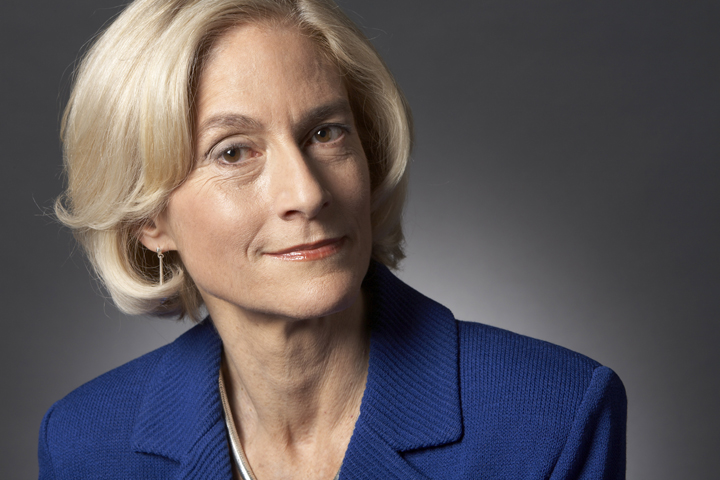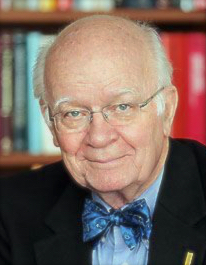Martha Nussbaum Faces Our Fears
“Our summer of fear” was a headline that greeted us one day this week
 “Our summer of fear” was a headline that greeted us one day this week. It captioned Christopher Borrelli’s published “conversation with Chicago philosopher Martha Nussbaum” (Chicago Tribune, July 9). The other three dailies which arrived the same morning offered other headlines above other subjects covered, but one could have appropriately filed many of them under the Nussbaum topic, “fear.” Perhaps autumn events and moods will soon elicit the name of some different emotion, but for now the Nussbaum interview addresses our fears expansively and credibly. The emphasis derives from the title and subject of her new book, The Monarchy of Fear: A Philosopher Looks at Our Political Crisis (Simon & Schuster, 2018), which draws notice among philosophers and pundits, and, as in newspapers and online magazines, the public. One cannot not deal with this author, so commanding is her presence, especially once her expressions reach publics.
“Our summer of fear” was a headline that greeted us one day this week. It captioned Christopher Borrelli’s published “conversation with Chicago philosopher Martha Nussbaum” (Chicago Tribune, July 9). The other three dailies which arrived the same morning offered other headlines above other subjects covered, but one could have appropriately filed many of them under the Nussbaum topic, “fear.” Perhaps autumn events and moods will soon elicit the name of some different emotion, but for now the Nussbaum interview addresses our fears expansively and credibly. The emphasis derives from the title and subject of her new book, The Monarchy of Fear: A Philosopher Looks at Our Political Crisis (Simon & Schuster, 2018), which draws notice among philosophers and pundits, and, as in newspapers and online magazines, the public. One cannot not deal with this author, so commanding is her presence, especially once her expressions reach publics.
Perhaps we have hurried past Nussbaum too briskly. Not everyone hears about or deals with every philosopher, including even the most public ones. To slow a bit: since 1995 this one has taught on “the law, philosophy, classics, divinity, South Asian studies and political science” faculties at the University of Chicago. Those interested in researching her can check out her Wikipedia entry or other sources which list bibliographies too long to get more space in this column. “Look her up!” we advise, and use the recent Tribune interview for launching. It is common practice to connect events and themes with temporal terms, such as the “Age” or “Era” or “Year” or “Epoch” of “Belief” (Dickens), “Enlightenment,” “Progress,” etc. Now we are down to the moment in the “summer of fear.”
Professor Nussbaum has famously written about the cultural and societal effects of various emotions. Asked what her current choice means, she draws on Aristotle, and paraphrases: “Fear is the sense that there are things that are bad for you and your well being, looming over you, and you are not fully in control of warding them off … We learn early on” that “we will die … and fear never goes away, we are all powerless over it. So fear can be easily hijacked and grow out of control—arguably more so than other emotions.” The interviewee observes that fear can lead “to anger, and anger can make you feel in control of your fear … Other emotions like disgust and envy get revved up when we feel afraid.”
Fear challenges democracies: “democracy means you have to work with people you may not like but you must still believe are your equals.” She considers what fear can do to a child. As for grown-ups? “[F]earful people never trust the other side … right now this country is like an abused child.” The interviewer goes on to ask what philosophers have to contribute in such a situation. Nussbaum has some fairly cheery things to say about the potential of philosophy and what we can learn from the classics, like Socrates, Lucretius, and Cicero, beginning with their stress on the “examined life.” Critics might charge that she would say that; after all, that’s what many tenured philosophers at her university have long taught.
Nussbaum’s scope, grounded in humanistic philosophy, is broad. Noting that she is an adult convert to Judaism and an associate member of the Divinity School faculty, I am never surprised to read or hear of her dealing perceptively with theological accounts of fear and its role in stimulating anger and violence, forces which “religious” people can all too frequently manipulate. How she reasons theologically is the subject of other Nussbaum topics and treatments. I don’t have the full corpus of her writings before me. But I have read enough in her work to find her viewpoints congruent with a very early Christian claim: that “perfect love casts out fear” (1 John 4:18). When religious leaders join politicians in manipulating our fears, it is in place to ask: where is, if not perfect, then at least some even imperfect measure, of love?
Image: Martha C. Nussbaum, the Ernst Freund Distinguished Service Professor of Law and Ethics at the University of Chicago | Photo Credit: Robin Holland (cc)
 Martin E. Marty (PhD’56) is the Fairfax M. Cone Distinguished Service Professor Emeritus of the History of Modern Christianity at the University of Chicago Divinity School. His biography, publications, and contact information can be found at www.memarty.com. Martin E. Marty (PhD’56) is the Fairfax M. Cone Distinguished Service Professor Emeritus of the History of Modern Christianity at the University of Chicago Divinity School. His biography, publications, and contact information can be found at www.memarty.com. |
Sightings is edited by Brett Colasacco (PhD’18). Sign up here to get Sightings by email. You can also follow us on Facebook and Twitter.


